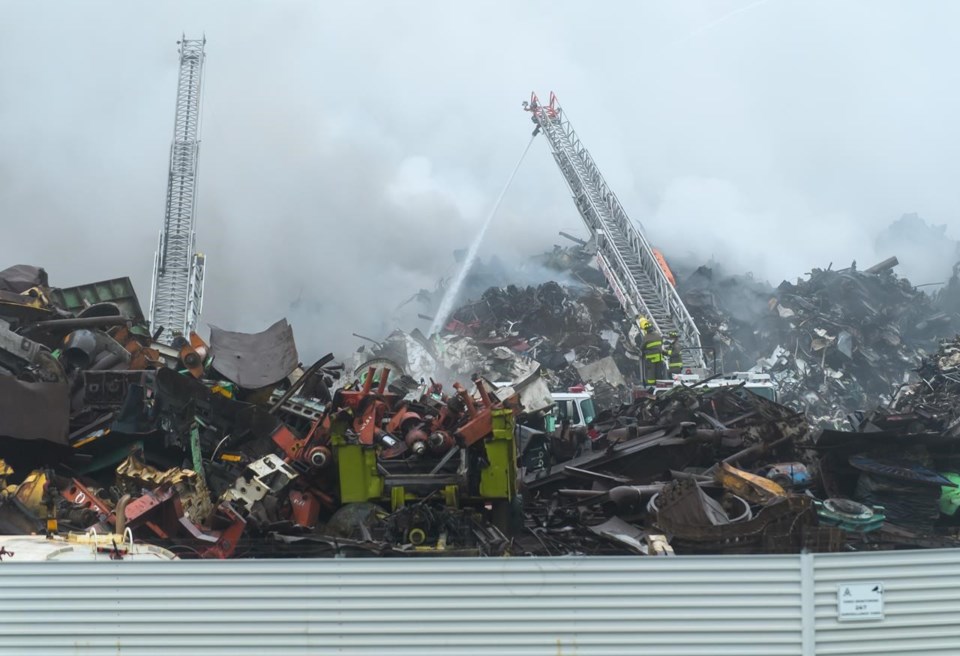FREDERICTON — A panel investigating a major scrapyard fire in Saint John, N.B., has concluded that the sprawling site on the harbour is at significant risk of a future "catastrophic" blaze.
The finding was in a 38-page report written by representatives from the port authority and the provincial government, who investigated the Sept. 14 fire at the American Iron & Metal plant that took nearly three days to extinguish and forced residents to stay indoors with their windows closed.
Saint John Mayor Donna Reardon has said the fire was the size of three football fields, about three storeys tall at its peak, and left an acrid smell in the air.
Released Tuesday by Attorney General Ted Flemming, the report said the location of the plant, in the city centre and close to a residential neighbourhood, is inappropriate given its known hazards.
"The negative socio-economic impacts of the American Iron & Metal operations at its present site are unacceptable to the City of Saint John, its residents, and surrounding communities," the report concluded.
It said that the environmental impact assessment for the plant did not identify risks of explosions or fire. But since 2011, there have been 181 explosions and 22 fires at the site — and their frequency has increased over time, the report said.
Saint John is ill-equipped to manage potential future fires at the site, Flemming told a news conference Tuesday, noting that firefighters did not have enough water to battle the September fire. "And how can a firefighter fight a fire with no water?"
It took about 83 million litres of water to douse the fire, 72 million of which was sea water taken from the harbour, he said. The remainder was drawn from the city's water reservoir, which was drained by almost half in the first six hours of the firefighting effort.
Flemming said had it not been for a plane owned by J.D. Irving Ltd. that drew water from the harbour, the fire would not have been put out as quickly.
"The repercussions for the community would have been disastrous," he said. "This fire would have burned for upwards to a week."
Flemming said the exact cause and origin of the September fire is inconclusive. "Investigators believe that the likely cause was related to rechargeable lithium ion batteries, which were found at the site of the fire."
The fire released contaminants into the air and the water. Significant additional testing and analysis is required to assess the existence and scope of the environmental and human health impacts, the report said.
In a news release on Tuesday, the City of Saint John asked residents to throw away homegrown leafy greens and asparagus, and any vegetable that cannot be thoroughly washed. Vegetables grown underground, such as potatoes, carrots, onions and garlic, should be peeled and washed before using, it said, adding that fruits and vegetables with smooth surfaces that are grown above ground, such as tomatoes and apples, should be thoroughly washed before eating.
Flemming said testing identified contamination, likely from both the fire and the efforts to extinguish it, at levels exceeding those that may pose a risk to human and ecological health.
Public Safety Minister Kris Austin said there was some "very damning stuff" in the report, adding that the operations of the plant remain suspended. "We are reviewing the report and the process that needs to be done, and we will do what needs to be done," Austin said.
American Iron & Metal did not return a request for comment on Tuesday.
Flemming called the fire "horrendous" and said the province will do everything it can to prevent another one at the site.
"And I'll tell you this," he said. "I know that this isn't going to happen again."
This report by The Canadian Press was first published Dec. 5, 2023.
Hina Alam, The Canadian Press



